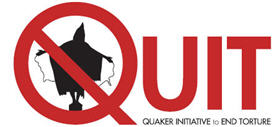Lawyers postpone Guantánamo testimony from
CIA’s first ‘Black Site’ prisoner
http://www.miamiherald.com/news/nation-world/world/americas/guantanamo/article139657118.html
Lawyers on Wednesday postponed until
May the war court testimony of forever prisoner Abu Zubaydah, the guinea pig in
the CIA’s post- 9/11 interrogation program.
He has never been charged with a
crime and never been allowed to speak in public.
At issue is a claim by accused 9/11
plot deputy Ramzi bin al Shibh that someone is intentionally disrupting his
sleep at the clandestine Camp 7 prison. Bin al Shibh, 44, blames the CIA or
troops doing its bidding for noises
and vibrations that interfere with his ability to
prepare for his death-penalty
trial, which has no start date.
But Bin al Shibh attorney James
Harrington announced in court Wednesday that both of Abu Zubaydah’s lawyers —
one a civilian, the other a Navy commander — were sick and unable to travel to
Guantánamo to represent in his Sept. 11 war crimes case appearance. They should
be fit and ready by the May 10-19 pretrial hearings, Harrington said.
Defense lawyers say Zubaydah is being
called as a trusted Camp
7 block leader to describe his
interactions with and on behalf of bin al Shibh. Zubaydah, 46, whose real name
is Zayn
al Abideen al Hussein, was a prized early capture in the
war on terror and was the first captive to be waterboarded, 83 times in a
single month, among other experimental CIA “enhanced interrogation techniques.”
Bin al Shibh says the CIA has been
messing with his mind since his Sept. 11, 2002 capture in Pakistan, a complaint
prosecutors dismiss.
But psychologist James Mitchell, an
architect of the Black Site interrogation program, wrote in his recent memoirs
that the vibrations were real in at least one Black Site. “I thought about
giving him a special tinfoil hat to make it all go away,” he wrote in his “Enhanced
Interrogation, Inside the Minds and Motives of the
Islamic Terrorists Trying To Destroy America.”
Then he and his CIA contract partner
Bruce Jessen each lay down on bin al Shibh’s cell bed.
“The vibration was there, and it was
not something you could ignore. It made me feel like the room was spinning,”
Mitchell wrote. “I could imagine that after a while it might make a person
nauseous. It would certainly keep me awake, but oddly enough, you couldn’t feel
it anyplace else in the cell.”
Mitchell and Jessen were CIA
contractors who designed and implemented some interrogation tactics used on
“high-value” captives — waterboarding them, slamming them into walls, depriving
them of sleep, withholding food, manipulating their diet, shackling them in
stress positions, forcing them to be nude, hooded or listening to loud noises
as well as confining them to a dark coffin-like box.
But
Mitchell in his book blamed the vibrating bed at the Black Site on “an
engineering problem localized to that cell.” He wrote that he couldn’t explain
more for security reasons about “the cell or how it was affixed inside the
building.” But, he said, the vibrations “happened only when a large piece of
equipment situated near by was running.”
Last
year, before Mitchell’s book came out, bin al Shibh testified that it happens at Guantánamo, too.

No comments:
Post a Comment
Note: Only a member of this blog may post a comment.